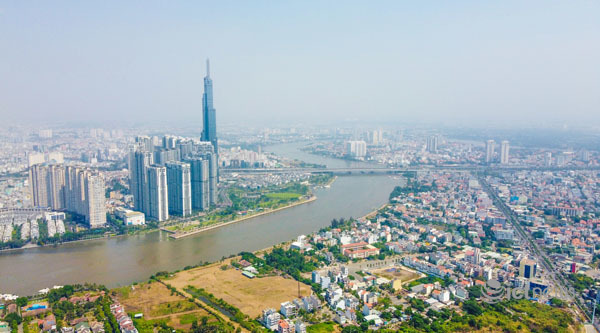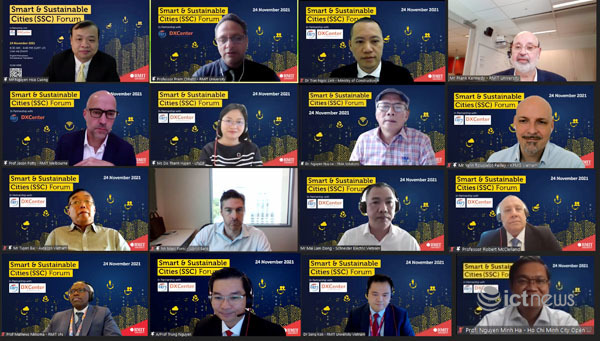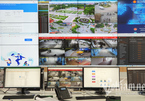Cities across the globe are challenged to become more sustainable in response to population growth. Against this backdrop, the Smart and Sustainable Cities Forum brought together leading experts to discuss how to strengthen the symbiotic relationship between smart cities and sustainability.
 |
|
According to research by UNDP, Vietnam is implementing smart city projects in 41 out of 63 provinces.
|
Held on November 24, the forum was organized by RMIT University in collaboration with the Central Institute for Economic Management (CIEM) and the Ho Chi Minh City Digital Transformation Consulting and Support Center (DXCenter).
With more than 3.5 billion people living in urban areas and 70% of humanity expected to live in cities by 2050, building smart and sustainable cities is a top priority for social development globally.
According to Professor Peter Coloe, President of RMIT University Vietnam, in the process of learning about the intersection between smart and sustainable development, it is necessary to understand that this is a major issue that affects all countries. He believes that in the field of urban development new technologies and tools can improve the lives of people living and working in urban areas.
“Through smart governance, smart transport and smart logistics, for example, urban planners, policymakers and leaders can manage equitable and sustainable development in cities much better,” Professor Peter Coloe said.
Do Thanh Huyen, Public Policy Analyst at the United Nations Development Program (UNDP) in Vietnam, said that Vietnam has made significant progress such as implementing a smart city project in 41 out of 63 provinces and cities and contributing to the realization of the United Nations' Sustainable Development Goals.
 |
|
The Smart and Sustainable Cities Forum brings together nearly 40 leading researchers, practitioners and innovators from both the public and private sectors.
|
Big cities in Vietnam need to make efforts to develop not only on the smart side but also on the sustainable side to meet the increasing demand due to economic development and pressure from population growth.
“The challenge for cities in Vietnam is how to apply appropriate technological and non-technological solutions to meet the economic, social and environmental needs of city residents with diversity in composition, including the immigrant community, disabled community, poor community, in the present and in the future,” Huyen added.
Nguyen Hoa Cuong, Deputy Director of the Central Institute for Economic Management (CIEM) under the Ministry of Planning and Investment, emphasized the importance of promoting cooperation among stakeholders in the development of smart and sustainable cities.
Cuong said that a major policy challenge in Vietnam is to facilitate efficient exploitation of infrastructure, while ensuring environmental sustainability and improving innovation capacity of cities.
“Policymakers need to collaborate early with experts in urban development, digital solution delivery, innovation, research, and all other stakeholders; at the same time, continuously consult with them during the process to build and improve cities,” said Cuong.
Van Anh

41 of 63 provinces and cities in Vietnam are building smart cities
To date, 41 out of 63 provinces and centrally-run cities in Vietnam have developed projects on smart cities of various scale.